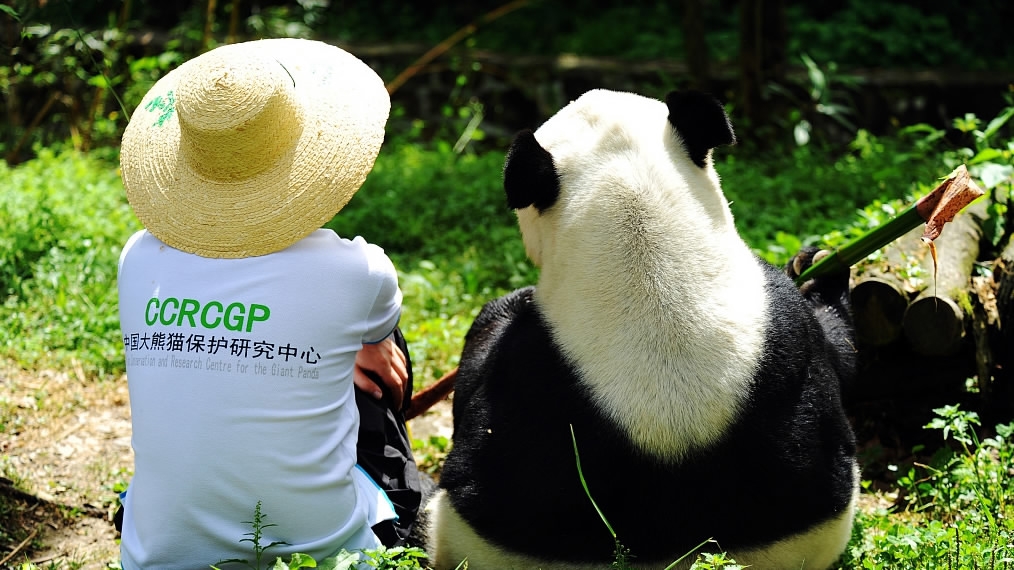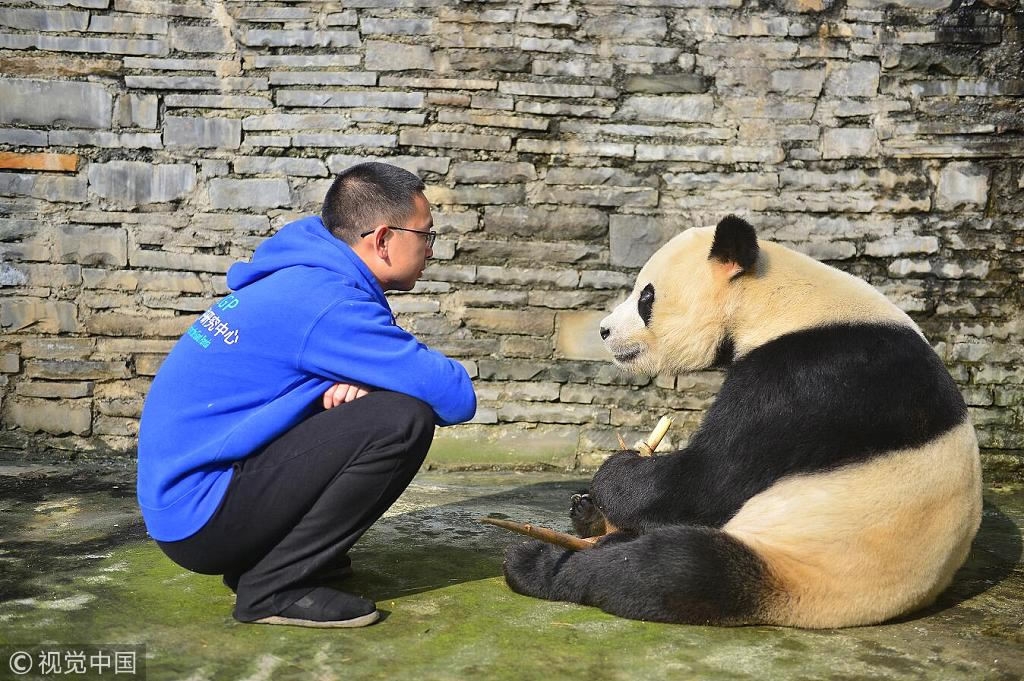
China
22:57, 22-Dec-2017
Netizens mourn giant panda Peng Peng’s death
CGTN

Giant panda Peng Peng, who died last Sunday night at the age of 18, succumbed to epilepsy and brain bleeding, the China Conservation and Research Center said.
Peng Peng was diagnosed with cataract in 2011 and he had been receiving special care because of eyesight problems, the center said Thursday.

Giant panda Peng Peng, who has died, and his former keeper Tang Cheng. /VCG Photo
Giant panda Peng Peng, who has died, and his former keeper Tang Cheng. /VCG Photo
He won the netizens’ hearts and became a celebrity after his keeper Tang Cheng shared cute pictures on Weibo, the Twitter-like social network in China, in 2016. The most famous one is of the panda wearing a lotus leaf hat.

Peng Peng wearing a lotus leaf hat /Photo via Tang Cheng’s Weibo
Peng Peng wearing a lotus leaf hat /Photo via Tang Cheng’s Weibo

Peng Peng with a meal of bamboo and fruits. /Photo via CCRCGP’s Weibo
Peng Peng with a meal of bamboo and fruits. /Photo via CCRCGP’s Weibo
Tang has also written about his “panda buddy,” calling Peng Peng “the brave” and wishing that his smile and cuteness will continue to cheer people up.
Many fans and panda lovers mourned online for Peng Peng after hearing about his death.

Screenshot of Weibo users’ condolence
Screenshot of Weibo users’ condolence

Screenshot of Tang Cheng’s article posted on Weibo
Screenshot of Tang Cheng’s article posted on Weibo
Born in October 1999, Peng Peng was the son of the renowned Pan Pan, one of the longest living pandas. He left over 130 descendants at his death last year aged 31.
The average life span of a wild panda is about 18 to 20 years and they can live up to more than 30 years if bred in captivity. Because of hunting and loss of habitats, they had once been on the verge of extinction.
Over the years, China has implemented various initiatives, including the establishment of nature reserves, to increase the giant panda population.
Statistics from China’s State Forestry Administration show that at the end of 2015, China had 1,864 giant pandas in the wild, compared with 1,100 in 2000, and there were 422 in captivity. Last year, the giant panda’s conservation status was downgraded from endangered to vulnerable by the International Union for Conservation of Nature.

SITEMAP
Copyright © 2018 CGTN. Beijing ICP prepared NO.16065310-3
Copyright © 2018 CGTN. Beijing ICP prepared NO.16065310-3